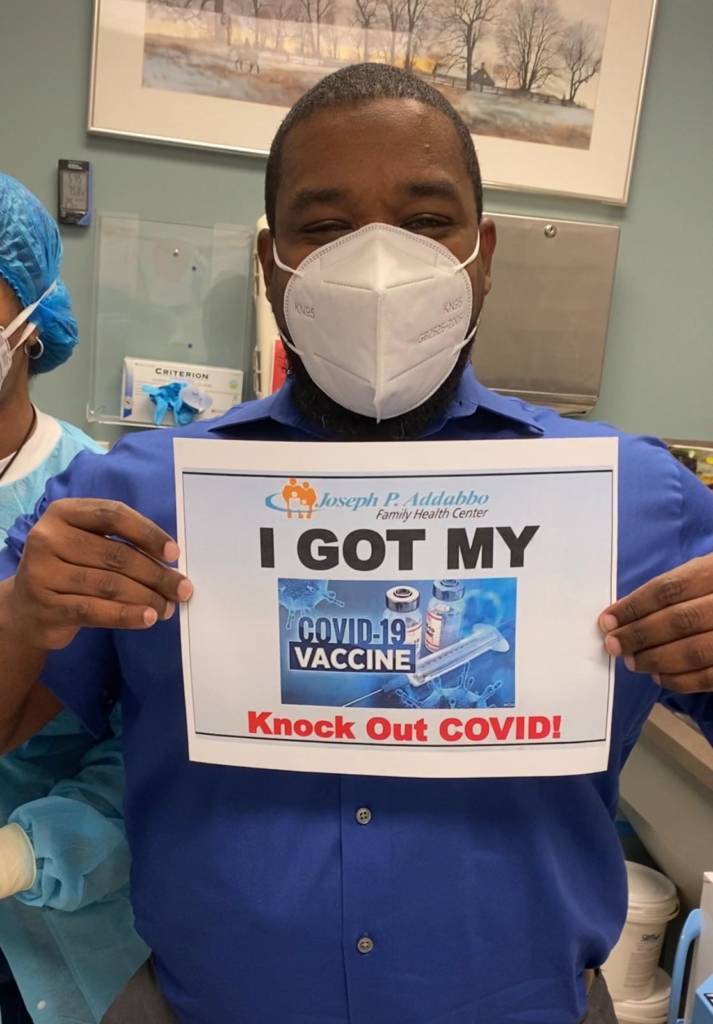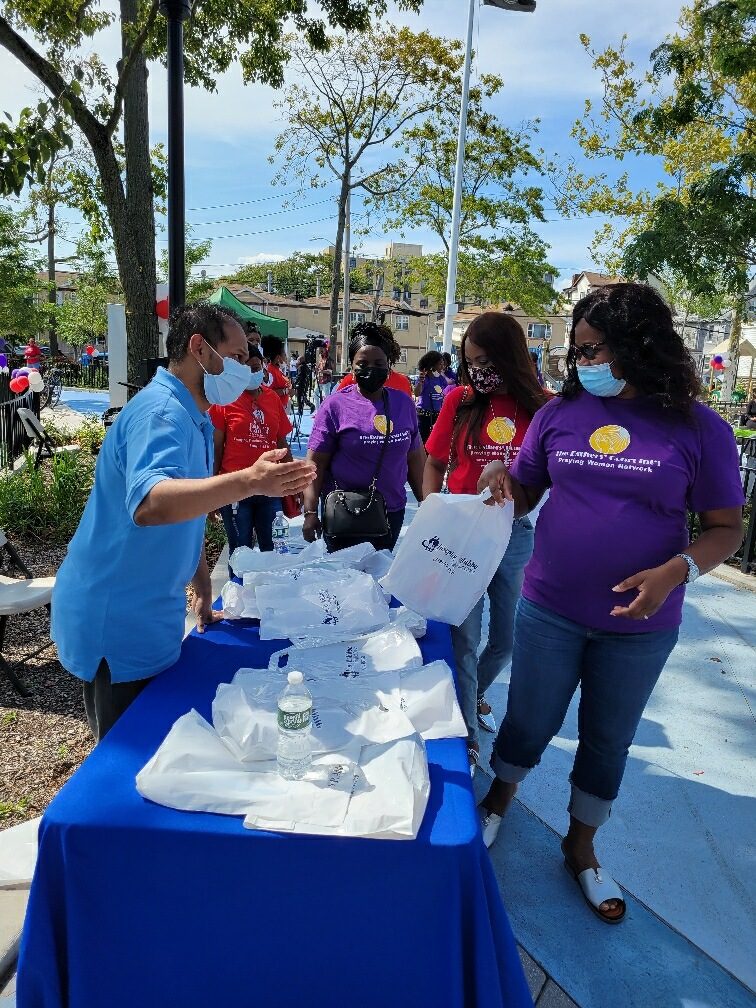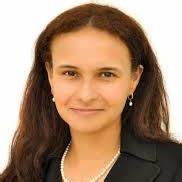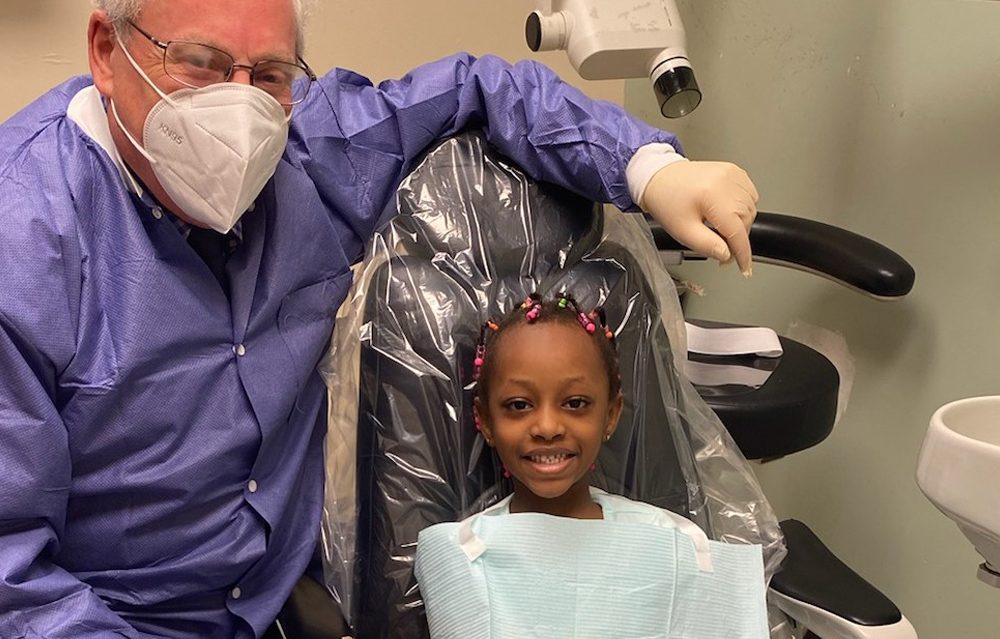People are astounded when CEO Dr. Miriam Vega tells them, “We’re actually in the rural parts of New York City.” In an area with few resources, the Joseph P. Addabbo Family Health Center serves as the patient-centered medical home for the vulnerable population. Stop & Shop has supported the Joseph P. Addabbo Family Health Center through the Community Bag Program.
Tell us about the Joseph P. Addabbo Family Health Center.
We were originally established as a free pediatric clinic in 1981 by U.S. Representative Joseph P. Addabbo, Sr. For more than 20 years, Congressman Addabbo passionately represented the Rockaways and Southeast Queens area in Congress. It was just one little, small clinic and it’s grown over the years. We now have five (5) sites.
We are what’s called a Federally Qualified Health Center. And our main mission is to serve everyone regardless of ability to pay and to make sure that we’re addressing the community health needs as effectively and compassionately as possible by providing leading preventative and comprehensive primary care services.
We try to see the whole person, so we provide internal medicine, gynecology, dental, podiatry; we have an allergist on site, and we have behavioral health. We are about being a patient-centered medical home.
What sets your organization apart from others in your community?
In some ways, what sets us apart is that we serve a population that’s very vulnerable, due to geography, due to health inequities in the community, due to community trauma.
If you look at the Rockaway peninsula, Far Rockaway is at the eastern end, an area that’s far from many other parts of New York city. There are low resources in the community. You have St. John’s Hospital and then Joseph P. Addabbo as the big family health practice.
We try to see the whole person. We are about being a patient-centered medical home.
Because we’re one of the few resources here, we have to supply as many essential services as possible. So along with primary care, dental, behavioral health, ob-gyn, we also provide services called Ryan White services that are for individuals with HIV or people at elevated risk for HIV. We also do a lot of outreaches in the community to help educate the community in terms of health, risks and resources. Those are all essential to a community that’s so separated and isolated from the rest of New York City.

Tell us a story that clearly illustrates the good work you are doing.
We have a loving head of dentistry who actually goes into the schools sometimes if he hears of kids having extreme dental pain that’s keeping them from attending school. We have very caring providers that go the extra mile to help the patients. And that’s what really drove us this past year, a commitment to community health.
And COVID hit us very hard. One of our providers died from COVID. One of the first cases of COVID in New York city was here in Far Rockaway, and we took that very personally. We immediately did ten (10) testing sites for COVID. We were the first ones to do it in the Rockaways because we knew that many of our community members were “essential workers.” They worked in grocery stores and service positions. They were MTA workers. We wanted to be there for the community to help them help the rest of New York City.
A lot of what we did, we did on the fly. We, along with the experts, were learning as we went along. And because of that, we got a great deal of notice, and Governor Cuomo also asked us to become an official testing site.
And then, I was put on the Vaccine Equity Task Force because what we wanted to champion was to make sure that everyone who needed and wanted a vaccine received it. Far Rockaway still has one of the lowest vaccine rates in New York City. We also became a dedicated weekend vaccination site to encourage more people to get vaccinated.
At one point, the vaccine rates were 38%. We and others who helped along the way have gotten it now past 64%. And we did that not only with the weekend vaccine clinics, but with our outreach teams. I mentioned how we have HIV programming. What we did is that we pivoted some of our HIV outreach teams to become vaccine outreach. We had a bodega program, and we would also go into Stop & Shop. We’d go into the local corner grocery store, to the pizza shop and talk to the owners and to the managers and patrons about the importance of the vaccine. And what we were trying to do was create a snowball effect of getting the word out, talking to gatekeepers in the community, and we felt that it did a lot of good.
There were times when we would see some of the same people when we were doing outreach and they kept saying no and no, but by the fifth time that we saw them, they went and got vaccinated. So, persistence worked out.
What is your greatest achievement or contribution to the community?
I am very proud of what we’ve done in terms of COVID for sure. We took the leading role in the community, and we went out there when no one would. We weren’t too sure if our PPE was going to hold up even doing the outreach and then doing the vaccines. We’ve vaccinated hundreds and hundreds of people and changed minds along the way. But while doing that, we also maintained our level of primary care services, so we didn’t stop seeing patients for other things. That is a credit to our staff who remained dedicated to serving the community.
We kept a focus on other health issues, preventative issues, focusing on colonoscopies and getting people their mammograms. We restarted the mammogram screening van. We kept our eye on COVID, but we also kept an eye on what other health needs had to be addressed.
We come from the community and are for the community.
What is the most important thing you want people to know about the Joseph P. Addabbo Family Health Center?
About 75% of our employees are from the community. So, we’re community minded. We come from the community and are for the community. We understand the issues that arise from community trauma, which come from living in resource-poor environments with lack of access to resources.
We’re very proud of the fact that our staff represents the community. And we go out of our way to help the patient population because some of them may not even understand English. We’re there with them; no one gets turned away. We’re always going to help them out or try our best to get them other resources.

How are you using the funds you’ve received from the Stop & Shop Community Bag Program?
These are unrestricted funds, and we love to use unrestricted funds for the additional services that we provide to patients. For instance, we give them Metro cards so that they can get to their referrals. Often patients miss their referrals, their specialist referrals. For example, they won’t go to the cardiologists because they can’t get there. It’s too much of a hassle given the poor public transportation in the Rockaways and its geographical isolation. The Metro cards help people get to their appointments, not only to our appointments, but to the specialty appointments as well that they need.
Is there anything you’d like to add?
We’re expanding our Beach Channel Drive Building. We’re adding another 22,000 square feet and looking to see if we could bring in radiology or other much needed services to the Rockaway Peninsula that aren’t there yet so the community can receive quality healthcare close to home. Additionally, we are planning to expand our own services to include pediatric dentistry as well as a Wellness Center for Diabetes. So, we’re looking for new partners to provide new services. And if people have ideas on what services they’d like to see, we welcome their input.

